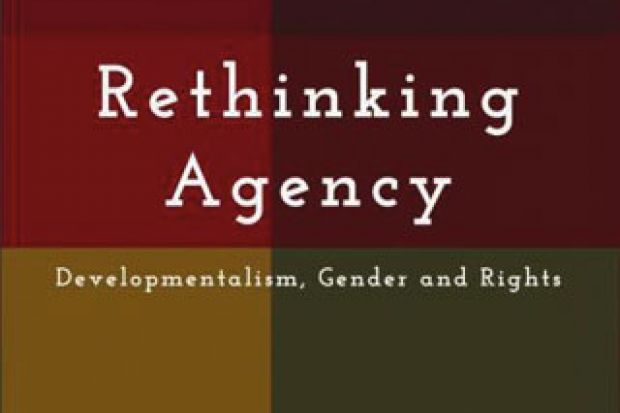Mary Evans, centennial professor in the Gender Institute, London School of Economics, is rereading Sumi Madhok’s Rethinking Agency: Developmentalism, Gender and Rights (Routledge, 2013). “Based on fieldwork in northwest India, this is a study of the impact of development policies. Madhok argues that the local women who are the focus of these policies become ‘agents of development’ and even more marginal. I find this compelling, not just because of the changes seen in one context, but because of the implications of similar policies elsewhere. Madhok raises fundamental questions about ‘development’, both the process and underlying principles.”

Stephen Halliday, panel tutor in history, Institute of Continuing Education, University of Cambridge, is reading Memories by Frances Partridge (Phoenix, 1981). “These memoirs of the last surviving member of the Bloomsbury Group (she died in 2004) are a beguiling account of life in that strange, leisured and privileged milieu that surrounded the literary hypochondriac Lytton Strachey after the First World War. A forgotten world, not much missed.”

Jane O’Grady, co-founder of the London School of Philosophy, is reading The Rhetoric of Sincerity (Stanford University Press, 2008), edited by Ernst van Alphen, Mieke Bal and Carel Smith. “‘My heart swore to it, but my tongue did not,’ declared Euripides’ Hippolytus. Can sincerity still be considered the manifestation of an inner state underlying a person’s physical expression of it, now that mental/physical, inner/outer distinctions are disavowed? These fascinating articles examine sincerity in its different historical, legal, theatrical, media and interpersonal contexts, and help us to rethink what it was, is and could be.”

A. W. Purdue, visiting professor of history, Northumbria University, is reading W. G. Runciman’s Very Different, But Much the Same: The Evolution of English Society since 1714 (Oxford University Press, 2014). “What would Daniel Defoe, that persistent traveller around the British Isles in the early 18th century, make of Britain today? Would he find the changes more striking than the resemblances? He would be amazed at the size of the population, modern transport and the standard of living, but Runciman suggests that he would find much familiar, especially political and economic institutions. This is a fascinating study of change and continuity.”

Sharon Wheeler, visiting lecturer in journalism, Birmingham City University, is reading Clare Balding’s Walking Home: My Family and Other Rambles (Viking, 2014). “Clare Balding always seems like a good egg and the sort of person you’d want to be your best friend. Based on the latest instalment of her charming and off-beat autobiography, she’d take you for long, hearty walks – but there would be cute dogs, and she’d make sure you got cake, coffee and a hot bath at the end.”
Register to continue
Why register?
- Registration is free and only takes a moment
- Once registered, you can read 3 articles a month
- Sign up for our newsletter
Subscribe
Or subscribe for unlimited access to:
- Unlimited access to news, views, insights & reviews
- Digital editions
- Digital access to THE’s university and college rankings analysis
Already registered or a current subscriber? Login

